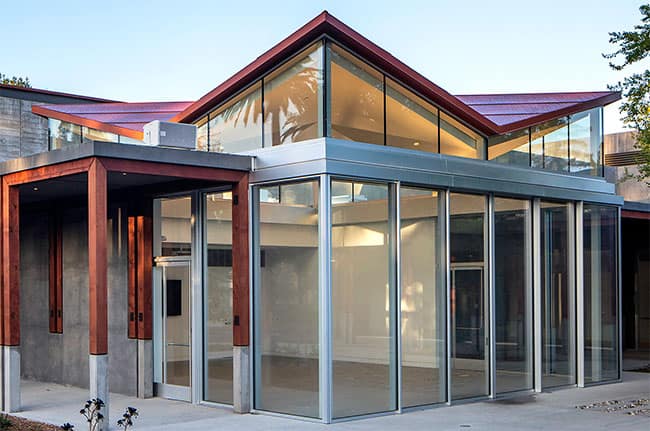Navigating the college application process: A primer for high school students

Photo/courtesy of freepik.com
By Andy Liu | Special to the Courier
With June just around the corner, many high school students are eager to trade their textbooks for tan lines, and to unwind after a year of tests, finals, and all-nighters. Yet, even as they finally get to lie on a sun-kissed beach, go out for coffee, or binge watch their favorite TV series, their minds drift back to the looming college essays, the activities they never found time for during the school year, and the gnawing fear that every second of rest pulls them further from their dream school.
So as a high school student approaching the dreaded college application process, how can you pursue the right internships, nail a standout essay topic, and still carve out real downtime that makes summer still feel like summer?
To begin, the college application process hinges on you actually turning in your materials on time, which include your activity list, personal statement, and supplemental essays. Carving out dedicated work periods over the summer for brainstorming and drafting your essays can spare you a last-minute scramble once school starts, and can help you focus on course work and maintaining a stable GPA.
“I definitely wish I had worked on my essays more,” said Kathy Duan, a senior at The Webb Schools heading to Stanford in the fall. “I chipped away at my supplementals here and there during the summer, and that unfortunately carried into the school year. With all the advanced classes I was taking, I should’ve spaced them out better.”
But how do you turn those summer experiences into essays that are different from the thousands admission officers read every single day? One approach is finding a summer program that aligns with your interests. Summer programs not only help you dive deeply into a topic you care about — whether that’s research projects, creative writing, or leadership initiatives — they also provide authentic, firsthand experiences you can weave into compelling college essays.
“I joined a summer research program where I worked with Ph.D. students on the topic of religious masculinity during the Cold War,” Kathy said. “I was looking at Christian, specifically Protestant religious masculinity, and I discussed my experience there in one of my essays.”
Beyond deepening your interests and adding unique experiences to your resume, summer programs can also help you reconnect with your cultural roots.
“I went to the Gathering of the Tribes summer residential program” at UC Riverside, said Claremont High senior Serenity Hamilton, who will be attending Brown University this fall. “As someone who is Mazahua, learning about the issues faced by Native Americans was an opening into my own culture.”
By channeling that self-awareness into your applications — connecting your identity with the activities you pursued — you present admissions officers with a vivid, compelling persona, not just a boring list of accomplishments.
Summer is also a great time to explore internships and volunteer work. Whether you’re tutoring at a local nonprofit, interning in a lab, or organizing a schoolwide debate camp, these roles demonstrate leadership, teamwork, and a commitment to causes beyond yourself.
“The thing that made the most impact on my college application was the volunteer work I did,” said CHS senior Griffin Sandridge, who will study economics at UCLA in the fall. “I taught students from third grade all the way to twelfth grade how to write and perform an argument, which helped me learn how to work with different people.”
Of course, the value of internships and volunteer work is clear, but for many students the hardest part is getting the opportunity in the first place.
“Volunteering is usually a little easier,” Kathy said. “Internships are harder because they require more experience, which is why being persistent is important. Don’t just send like one email and be like, oh, I did my work. Always follow up.”
Cold-emailing organizations, filling out applications, and facing rejections can be intimidating, especially when it seems like everyone else already has something lined up.
“The speech and debate institute I volunteered at was asking for summer volunteers and so I decided to apply,” Griffin said. “You can only accomplish things when you talk to people, and you know, put yourself out there.”
And while summer can be productive, it should also be a time of recovery. Amidst the internships, volunteer commitments, and summer programs, it’s easy to forget that rest is just as essential as putting in the effort. For many students, the guilt of not being productive enough can make even moments of relaxation feel like missed opportunities.
That’s why it’s important to be intentional not only with your goals, but with your downtime.
“I used to feel really guilty when I rested because I wasn’t actively trying to rest, I was just so burnt out,” Kathy said. “But now I would tell myself that I will be working for this amount of time, and after that, I am going to take a break.”
Intentionally carving out time to rest not only protects your mental health, but also helps you maintain focus during your productive hours. Whether it’s setting aside a tech-free afternoon, going on a hike, or spending time with friends and family, these moments recharge your energy for the work ahead.
In the end, a fulfilling summer doesn’t mean packing every hour with accomplishments. It’s about finding the right balance — between growth and rest, passion and impact — so that when application season arrives, you’re not just prepared, you’re ready.
Andy Liu is a 17-year-old rising senior at The Webb Schools in Claremont. He plans to study journalism and creative writing in college.









0 Comments